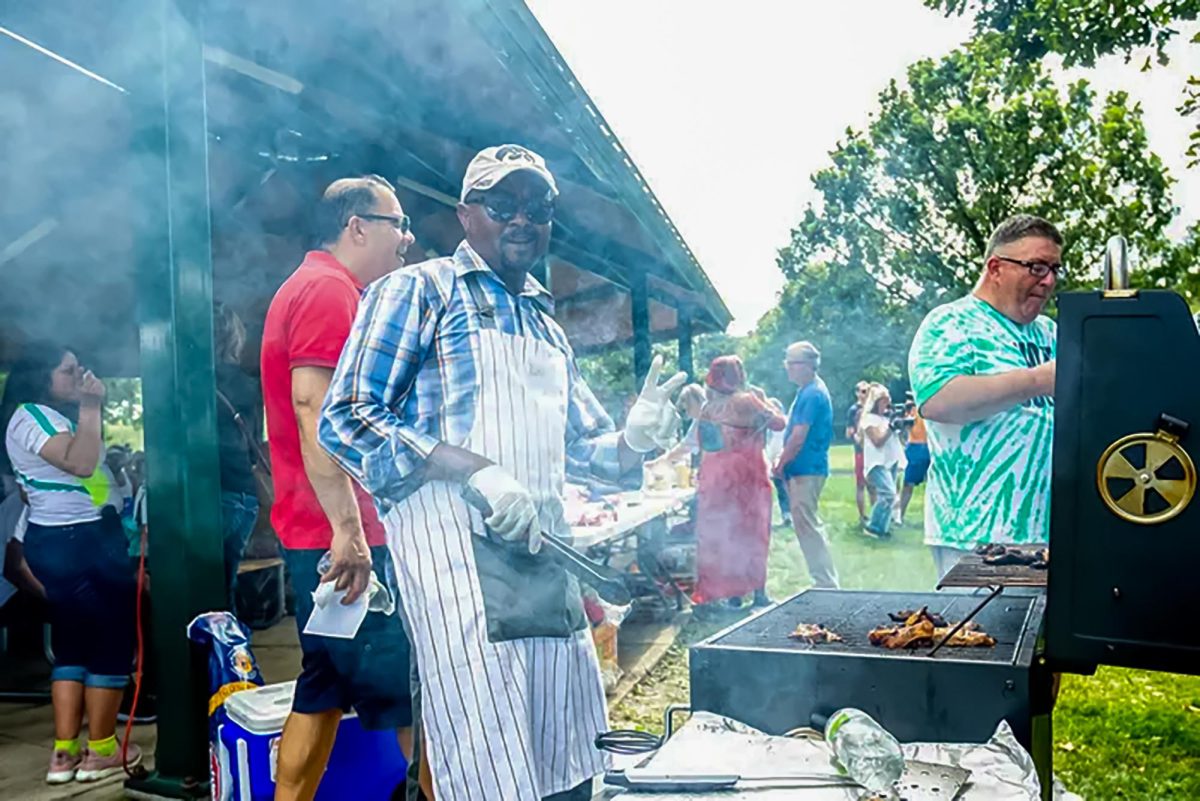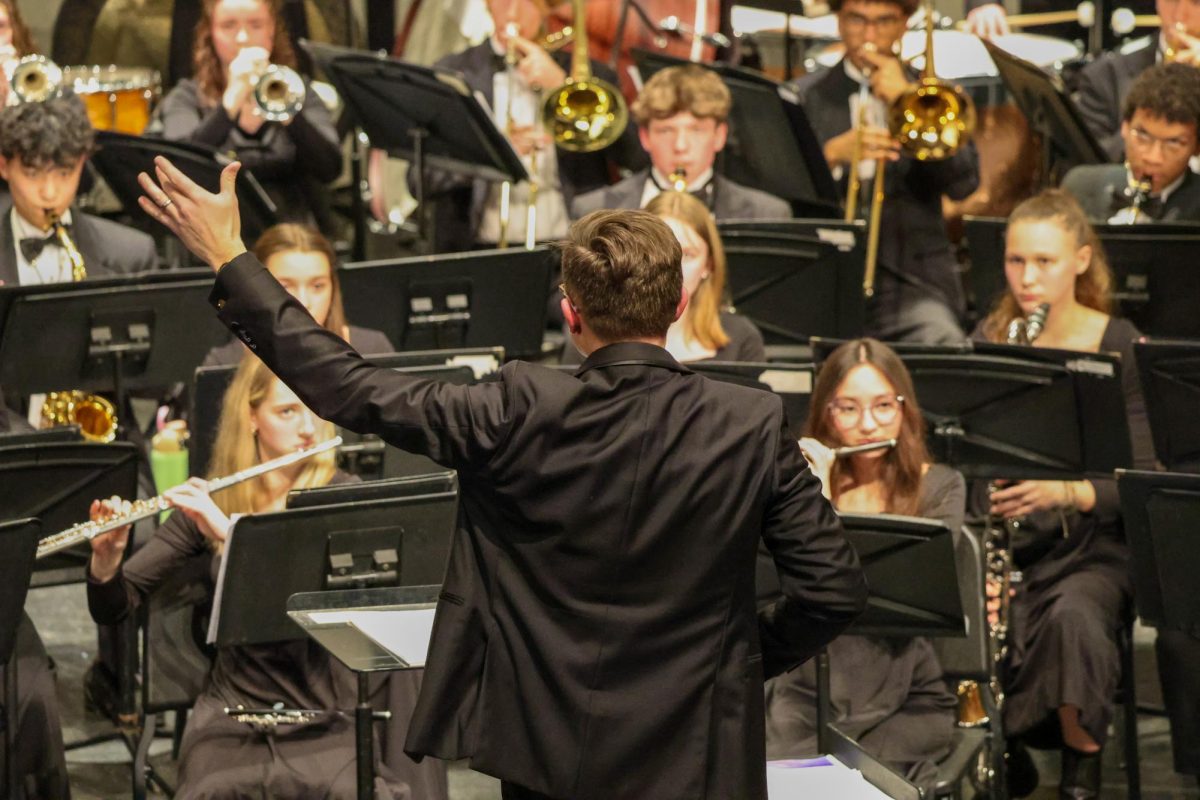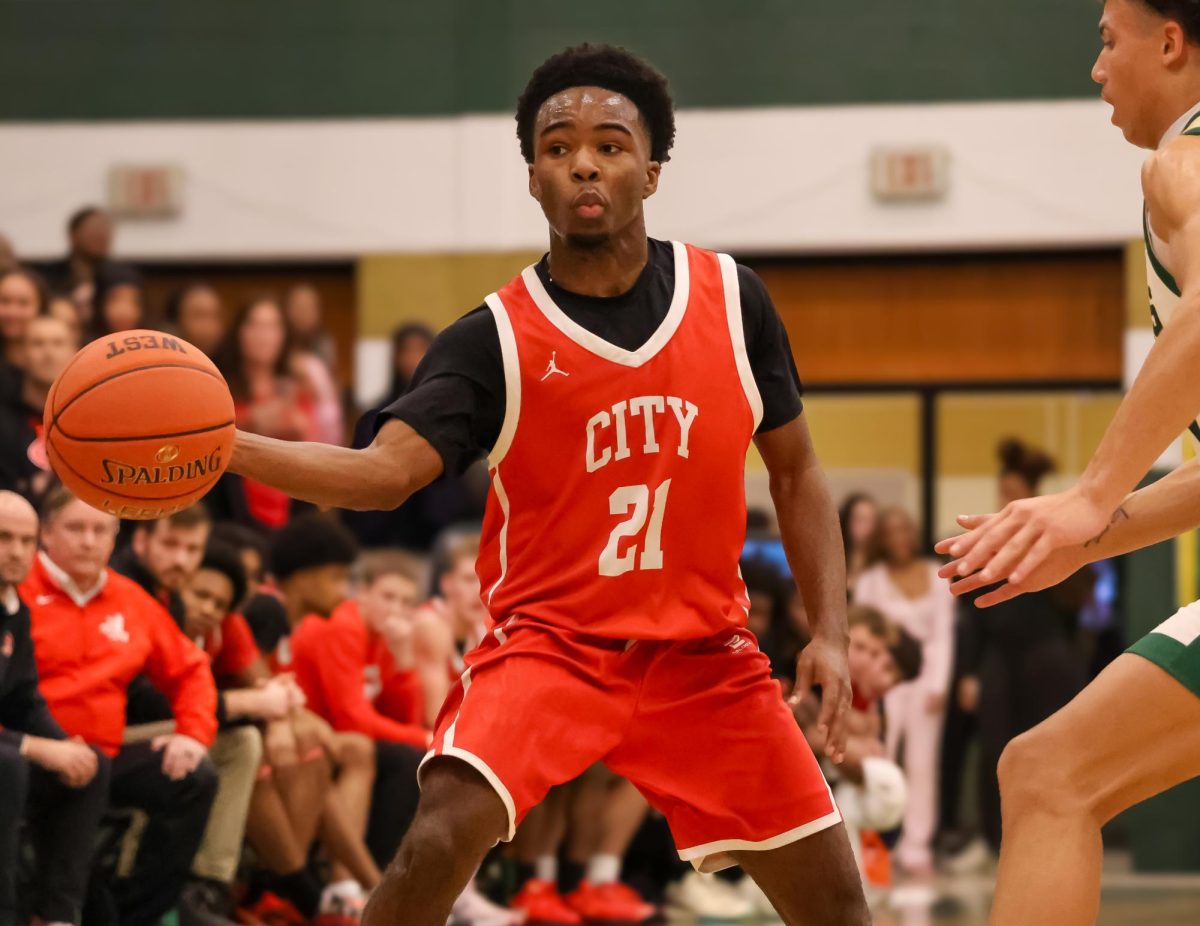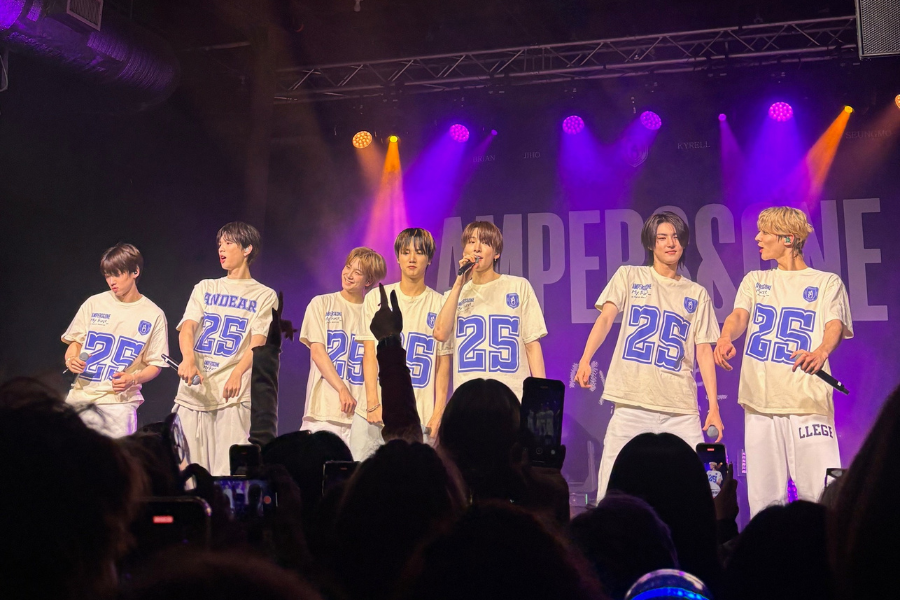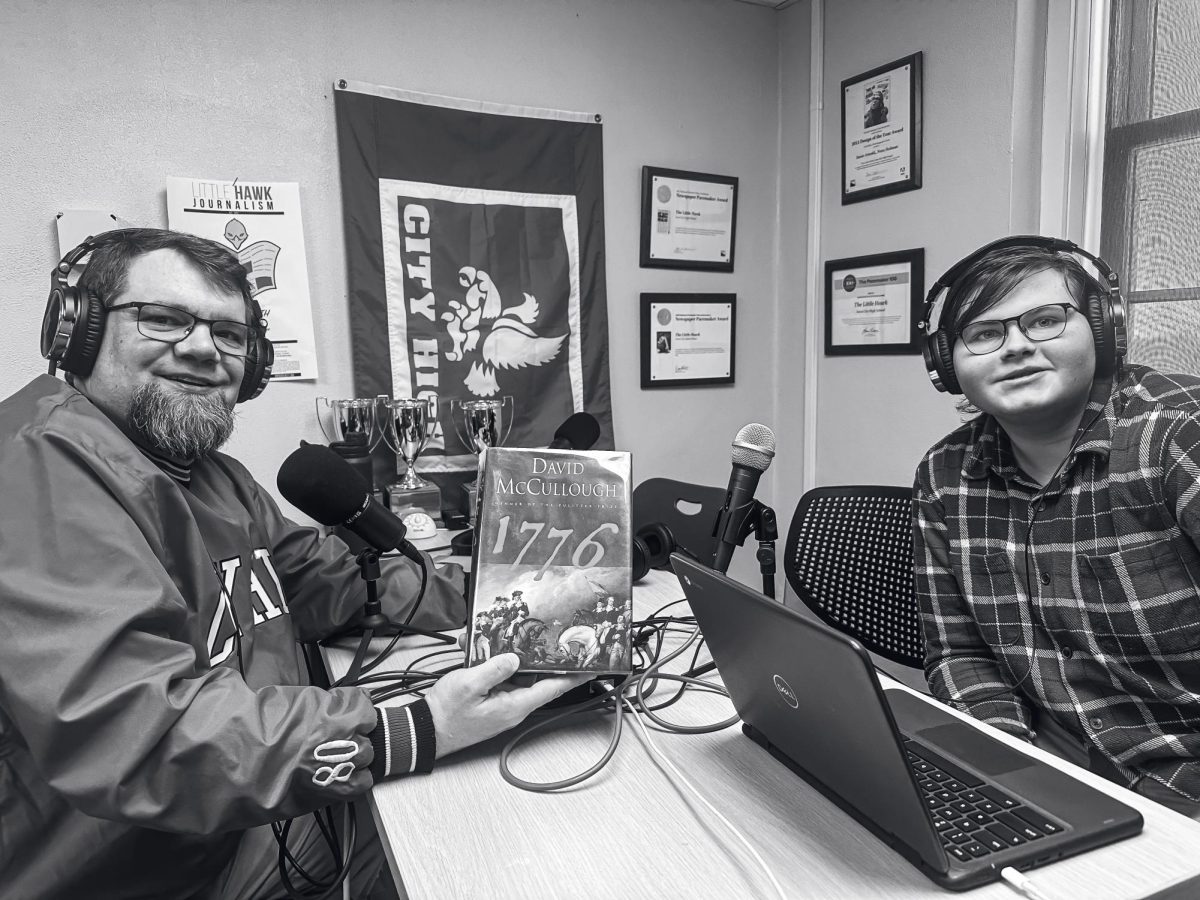The Experience of A Generation
March 12, 2019
In the United States of America, where there are an estimated over 44 million immigrants making up our population, the likelihood of knowing an immigrant or someone who knows an immigrant is very high. In recent years, immigration has often been brought up in politics, with many calling for stricter laws concerning entering the US legally. While the politics of immigration are important, that is not what I wanted to write about. In my life, I know many who are immigrants, but the ones who stand out the most to me are my own parents.
According to the Merriam-Webster Dictionary, first-generation has two meanings. First-generation can be used to refer to a naturalized American or first-generation can also refer to the a U.S. born American with at least one immigrant parent. As someone who has parents who are immigrants, and who both came to the United States from Mexico over 20 years ago, I have always had a feeling of isolation when it comes to relating to peers with American-born parents. Of course, an obvious point would be our cultural differences, but it’s more than that. It’s not that my peers consciously make me feel this way. Instead, it comes from this internal place which makes me feel as though I have two roles to play. I am an American student who goes to school and speaks English and learns new material every day. But I am also a 15-year-old Mexican daughter that speaks Spanish to her parents.
These roles blend some too. I help my parents out a lot. I don’t mean taking out the trash, or setting the table for dinner (which I also do, I just don’t have a choice in the matter), but it’s helping them read things they get in the mail, set up dentist appointments, write a message for their English-speaking contacts, and things of that sort. These are some personal examples of what it feels like to be a first-generation Mexican-American. I wouldn’t trade any of these things for the world, but it also makes me think about how others in similar situations like me feel about being in those positions. In order to find answers, I asked some of my peers who are first-generation Americans what that label means to them.
“Being a first-generation American means I grow up surrounded by a culture different, not necessarily separate, but different than American culture,” Feda Elbadri ‘21 said. “Ultimately, my parents’ culture and American culture have an equal way in shaping who I am.”
Elbadri is first-generation American; both of her parents are from Sudan. Her parents fled the country whilst it was in political turmoil, leaving due to their stance against the Sudanese government.
“I do accept many cultural values of my parents that I carry with me, that I’ll carry with me throughout my entire life, but I also accept American values and information. I kind of blend those values together with my background, with my parents and kind of who I am now growing up in this country that my parents didn’t grow up in.” Elbadri said.
According to the Migration Policy Institute, as of 2017, there are approximately 18 million children under the age of 17 with one or more parents who are immigrants. That makes up 26 percent of the 70 million children living in the United States. There are issues that many of these children have to face. There is a feeling of wanting to be a child holding fast to traditions that have been passed down for generations, but also wanting to fit into American society to avoid standing out.
This was something that Elbadri had agreed with and another peer of mine, Frida Escorcia ‘21, had a personal example of.
“I remember when I was little, I used to speak to myself in Spanish at school because I was more comfortable speaking it [instead of English]. Kids in my class would look at me and in a rude tone would ask, ‘Why do you speak Spanish?’ and I felt conflicted. I couldn’t stop speaking Spanish because that’s what I speak at home and it’s a part of me, but at the same time I don’t want to be weird because it wasn’t ‘normal’ to be bilingual at my school and I wanted to fit into this bubble of not being different. I guess this fits with also being bilingual but being bilingual fits into my identity as a first-generation American. It made me feel like [I] had to change apart of my family’s identity to fit into my American one.” Escorcia said.
It feel like we are being pulled in two different directions. On one side, it’s to have enough of American culture, but on the other, it’s to also have enough of the culture our parents raised us in. In some families there is the need to assimilate to American culture as much as possible, but for others it is more important to keep the parents’ native culture as apart of one’s identity and not fall into American culture.
“I feel like my parents have more concern about me kind of becoming ‘too American’ or leaving my culture than if I had American parents. Because American parents having American children, that’s their shared culture. That’s what everyone grew up in, and what they know and understand,” Elbadri said.
A common thing that is often related to immigrants is their native languages. The United States does not have an official language and according to the U.S. Census Bureau, as of 2015, there are 350 languages spoken in the States. Being bilingual is also a big part of the first-generation American identity.
“I think the most prominent thing [being first generation] is the language barrier,” Escorcia said. “Whenever we went to the grocery store I had to be there to interpret for my mom, or when we went to conferences and my dad was at work, I would have to come along so I could interpret for her.”
Elbadri thought similarly.
“Usually when I think about my parents’ first language not being English, it usually has to do with what I help them with- things that have to do with English. It can be a nuisance sometimes, but it kind of forces me to grow up, because then I have to take care of some things on behalf of them and my family, so I think it gives me more opportunities than my peers that are not first-generation have. I guess I’m exposed to more adult responsibilities before they [non first-generation American students] are.”
First-generation Americans juggle many responsibilities our non-first-generation American peers may not worry about. From interpreting at school conferences, to fitting into both cultures that you were raised in, it feels like a world of effort compared to having American born parents. Our parents have an expectation that we have to do well in school and get into a good college and to have a good career. Anyone can relate to that, of course, but for me and other people with similar backgrounds, I’m not only doing this for me, I’m doing this for my parents as well. I see it as a way to repay them for everything they have done for me. My parents risked everything to come to the U.S. and start a life where their children would have a better future with opportunities they didn’t have.
“I always felt pressure of not wanting to disappoint my parents so I would [have] always had a mindset of going beyond expectations at school. If I didn’t meet these expectations, I would feel disappointed in myself because they [my parents] sacrificed so much to come to the United States to have my life be better than theirs was,” Escorcia said.
It comes at a cost to do everything at once, not only for our parents, but for ourselves too.
“It is a lot of pressure being this perfect individual who gets good grades, and keeps up with everything in the house, and has this amazing life out of thin air. It’s a lot of work trying to be what your parents want you to be, their version of success, but also juggling what you want to do and how you feel about your life, and what it’s going to turn out to be,” Elbadri said.
Even with all of this pressure, I wouldn’t change being a part of the first generation for the world. I grew up fast, and have learned so much about how to be hardworking and strive for higher goals. We strive for success- and know that it comes with hard work and sacrifice.






